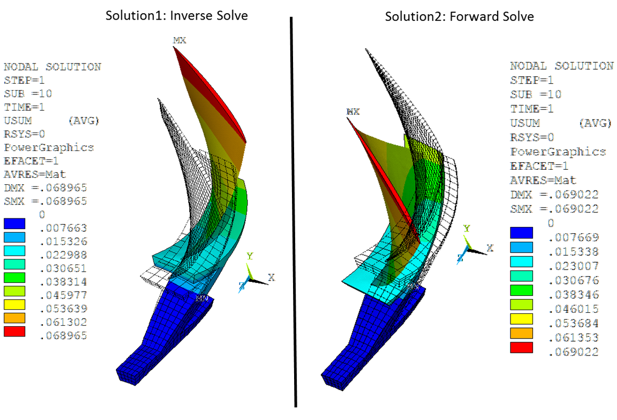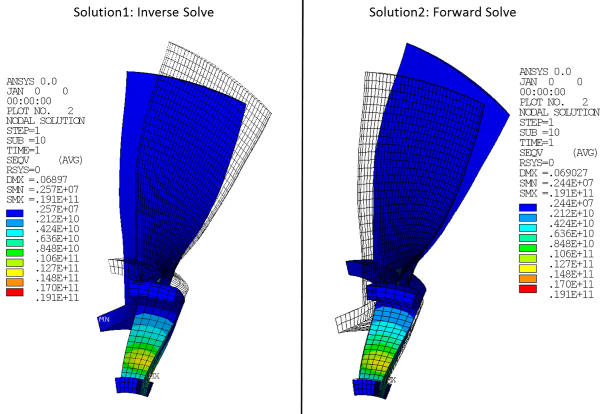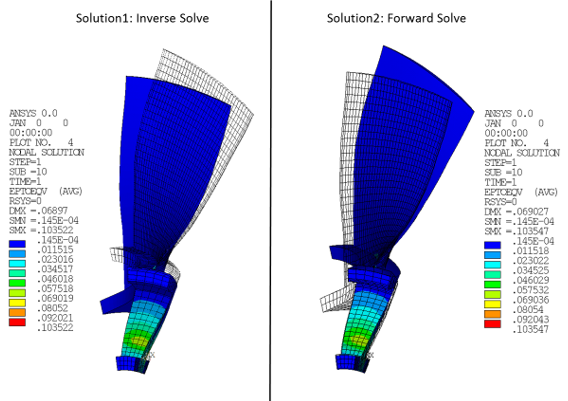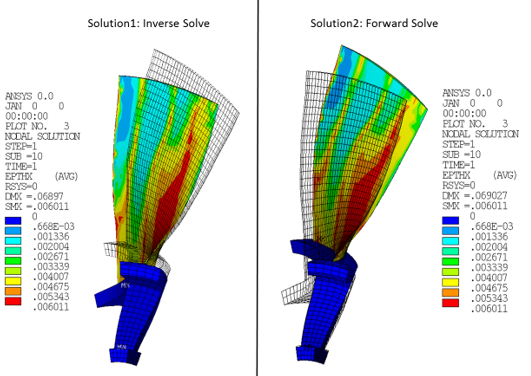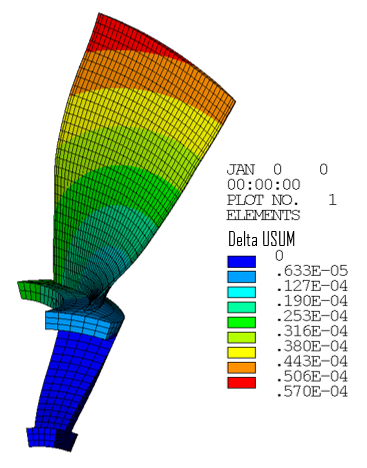To easily compare the results of both analyses, the inverse-solving analysis results are plotted on the cold (solution or reference) geometry. The results of the stresses and strains are actually the results on the hot (input) geometry.
The results of Solution 1 (inverse-solving analysis) and Solution 2 (forward-solving analysis) match very closely, showing that inverse solve gives the correct cold geometry of the rotor fan model:
Solution 1 and Solution 2 comparisons of the equivalent stress and equivalent total strain plots show that the results match:
The following figure shows a comparison of thermal strain in the X direction between Solution 1 and Solution 2:
In the following figure, the difference between Solution 1 and Solution 2 on the hot geometry of the rotor fan blade model is very small, indicating that the cold geometry obtained can be considered to be correct:



